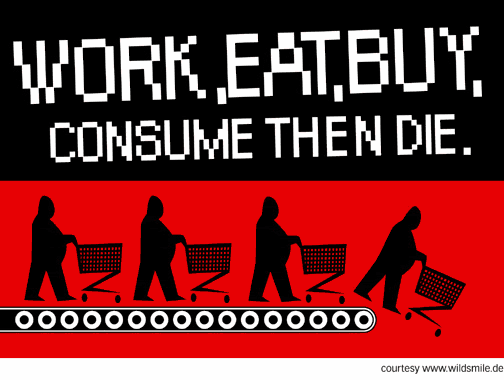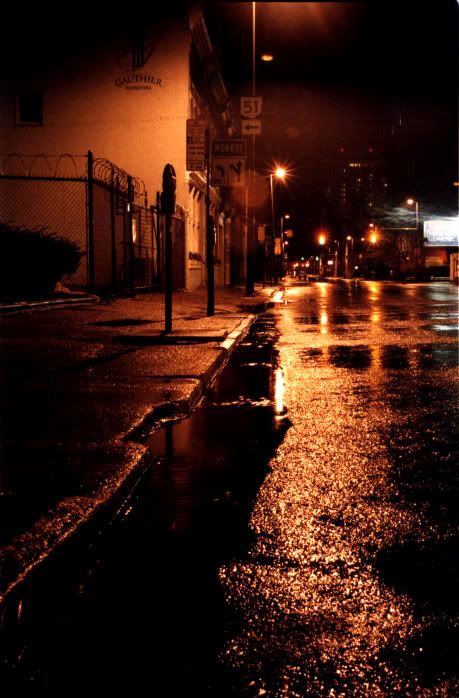Well, I drove nearly 6 hours to Seattle yesterday, then immediately drove 6 hours back home to Idaho to make it back in time for Easter Sunday. The reason? To see my guitar hero live. That’s right, the Algerian born Frenchman served up a plate of rich solo guitar harmony, sophisticated compositions and extraordinary virtuosity. It was really a treat to him play first hand and witness the energy put into each piece.
I was first introduced to Pierre when I borrowed the “Best of The Thistle and Shamrock” compilation CD from the local library. This disk was put together by Fiona Richie, who hosts the Celtic music show on NPR under the same name. Since then I’ve waited nearly 3 years to see him in concert. I guess this trip was kind of a spiritual pilgrimage for me. Nah, scratch that. It’s not really spiritual. But a musical/artistic pilgrimage. You see, about the time I discovered Pierre’s music, I was completely burnt out from 13 years of trumpet. I still loved music, but had become very disillusioned with my instrument and with what to “DO” with music in the future. Pierre’s playing really HAS inspired me to keep going. Since then I’ve picked up classical guitar and found it to be quite rich and rewarding.
Anyway, a few comments on the concert:
I’d never seen anyone so at one with their instrument. My guitar professor at our local university is an accomplished classical player with a huge repertoire. However, when he plays, it seems to be that he is just interfacing with his guitar. With Pierre, it was difficult to tell where the man ended and the guitar began. There were occasionally difficult passages where he would slip out of his improvisation driven mode and focus on some tricky fingerings for a few measures. It was during these points that he resembled the musicians I’m usually familiar with. But it was only for a moment and then he was back in the zone.
He played mostly pieces from his last two studio albums: Intuite and Altiplanos. With nearly each song he began by improvising through each piece for several minutes. Then he would launch into the melody or introduction as presented on the album. It was easy to see that he is completely driven by improvisation. Writing the music down is kind of an afterthought. If you’ve ever seen his sheet music, it looks much more like a solo transcription than a music idea translated to paper. I think this is a hurdle to get over if you want to play some of his tunes. If you take a classical approach to it and just force-learn every note, you will be completely missing the point. Yes, there is an underlying chord pattern and especially bass line, but many of the embellishments and extra notes here and there could be played any number of ways.
On a side note, much of Pierre’s early Celtic stuff is much more straight forward and can just be read off the page note-for-note.
His improvisatory style has, I believe, has perennially disqualified him from being taken seriously by classical guitarists. I’m afraid this is a gross oversight. His compositions are very well put together, full of short and extended music ideas, rich in harmony both simple and sophisticated. His playing stretches the limits of the instrument and yet, can be surprisingly idiomatic. It’s made for the guitar from the ground up, not like evil Joquim Rodreguez pieces that were written on a piano. His voicing and self-accompaniment is often reminiscent of Barrios. I think some people are beginning to realize this. Andrew York recently collaborated with him on a concert tour and corresponding album. Classical guitarist James Kline released an album a while back featuring many Bensusan arrangements played on a nylon string. The other thing that has probably turned off people is his near-continuous use of scordatura. Scordatura is just what classical stuff-shirts call it when you use an alternate tuning. Most of his tunes are in DADGAD, as opposed to the standard EADGBE. So if you want to read any of his sheet music, you are probably going to want to look at the tab, not the traditional notation. Oh, but we can’t do that! Tab is for Guitar-World-readin’-metal-head dilettantes. That is just killing the messenger for the sake of being a purist. Get over it.
A side note on his playing being idiomatic. Some who have actually tried to play some of it (and found it very difficult) might have a hard time swallowing that one. Well, it’s just not so apparent at first! One thing to pay attention to is the bass line. He rarely has it on beats 1 or 3 or what you would expect. But he isn’t doing this just to mix it up. It’s actually to keep the notes flowing and make the bass line easier to play. You would come up with his bass lines if you had you’re guitar in hand. If you were writing it down at the desk or the piano, you might put the attacks in much more “logical” places, only to actually find it more difficult to play. I think this also contributes to his “harp effect”. That is, his notes are also placed to provide maximum sustain.
In watching him play, he often would shake his guitar against his body to get a global vibrato. I’ve seen people do this before, but he REALLY put it to good use. Listen to recordings it can be difficult to tell what kind of vibrato is being used (parallel to the string, perpendicular, or this global whammy-bar effect.) I was surprised that he seemed to use this as his PRIMARY form of vibrato. I didn’t see much, if any parallel vibrato going in. This is what classical guitarists and violin players use. There was maybe a little bit of perpendicular (favored by electric players), but usually only bring out a particular note on more sparse passages.
Oh, and he likes to sing with his playing. It’s mostly a kind of soft scat jazz improv. Critics have pointed out over there years that his insistence to keep singing has probably been his largest barrier to commercial success. I think he believes it to be so a part of himself that he would be sacrificing artistic integrity to drop it. That’s just fine, but I have to say I largely prefer his instrumental tracks. There is a reason that Intuite (his only album with no singing) has been his best-selling to date. (Actually, I don’t know if this is true now.)
I know in the past he has used a thumb pick, but now he has all acrylic nails. His right hand position looks to be in a mostly classical position. He rests his guitar on his right leg and kind of leans sideways. It sure looks uncomfortable to me!
Wow, the downtown scene in Seattle on a Saturday night is sure hoppin’! I was on Ballard Ave and every trendy bar was filled. The concert was at the Tractor Tavern, which focuses on music. No tables or pool or TV’s. The bar is against one wall and the rest of the room is open with folding chairs. There is a modest stage at one end. There were about 100 people there. I don’t think you could have had much more than 150 in the room though. It was pretty hot.
On my way back home I hit one of the Chocolati Cafe coffee shops and got a mocha made with their yummy house chocolate. (Not Hershey’s, bleh!). It kept me going on the drive back. Well, most of it anyway. After getting stuck behind a slow-moving truck with 3 flaggers and 2 police cars, I didn’t make it home until 3:40 AM. I wonder what the truck was carrying. Something radioactive maybe?
I think that’s pretty much all I have to say, though I need to go back and spell-check it.



